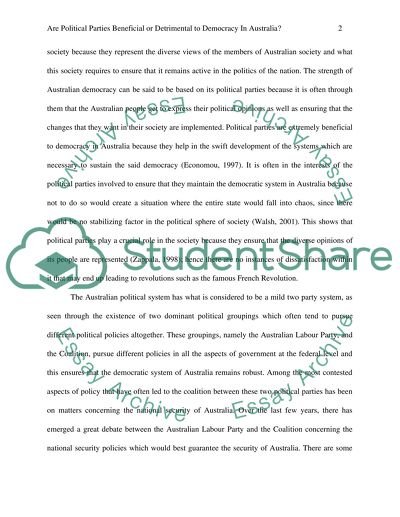Cite this document
(“Are political parties beneficial or detrimental to democracy in Essay”, n.d.)
Retrieved de https://studentshare.org/history/1489491-ypare-political-parties-beneficial-or-detrimental
Retrieved de https://studentshare.org/history/1489491-ypare-political-parties-beneficial-or-detrimental
(Are Political Parties Beneficial or Detrimental to Democracy in Essay)
https://studentshare.org/history/1489491-ypare-political-parties-beneficial-or-detrimental.
https://studentshare.org/history/1489491-ypare-political-parties-beneficial-or-detrimental.
“Are Political Parties Beneficial or Detrimental to Democracy in Essay”, n.d. https://studentshare.org/history/1489491-ypare-political-parties-beneficial-or-detrimental.


